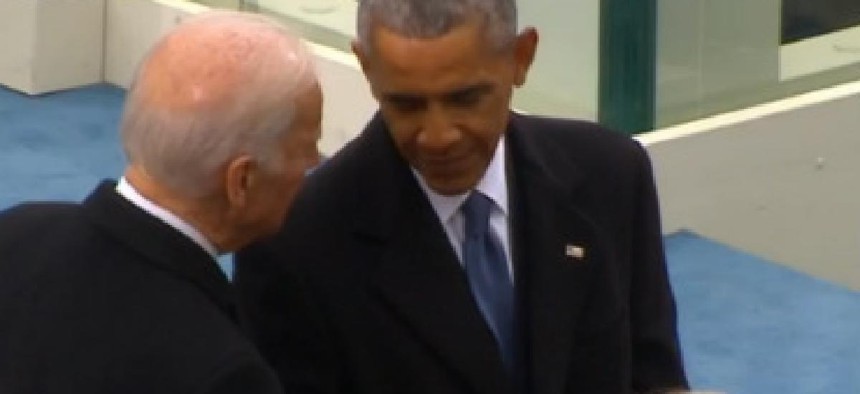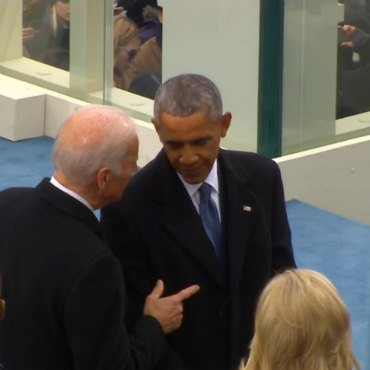Obama codifies PIF program on last morning in office

President Obama signed a bill making the Presidential Innovation Fellows program a permanent fixture of government, during his last hours in office.

Barack Obama and Joe Biden confer in the final minutes before the inauguration of Donald Trump.
On the last morning of his presidency, Barack Obama signed a bill that enshrines the Presidential Innovation Fellows program into law, putting a stamp on his legacy of supporting innovation in government technology.
The PIF program, founded in 2012 and managed by the General Services Administration, is one of Obama's hallmark tech initiatives, and in many ways it is the progenitor of the innovation group 18F and the U.S. Digital Service. Its purpose is to attract tech entrepreneurs from the private sector for year-long stints in government to tackle IT challenges.
Since its launch, the program has brought in more than 110 fellows who have partnered with 33 agencies technology projects such as the Cancer Moonshot initiative and Code.gov.
The Talent Act, the bill making the PIF program permanent, was backed by House Majority Leader Kevin McCarthy (R-Calif.). But despite support from both sides of the aisle, the program's future was uncertain, having received criticism for its price tag. Additionally, some in industry have made the case that the private sector could provide similar services if unshackled from federal IT acquisition regulations.
In November, a group of 39 entrepreneurs, coders and former government officials -- including Craigslist founder Craig Newmark, AOL founder Steve Case, Twitter co-founder Ev Williams, and former White House tech official Nick Sinai -- urged the Senate to pass legislation to make permanent the PIF program.
In August 2015, Obama issued an executive order making the program permanent, but the bill's enshrinement into law removes the prospect of the Trump administration rescinding the order via executive action.
The PIF program's next round of fellows are slated to begin work this spring.
Obama also signed into law on Jan. 6 a provision to make the federal chief technology officer a Senate-confirmable post. The long-term future of other in-house tech initiatives stood up under Obama, namely 18F at GSA and the United States Digital Service, remain unsettled.


